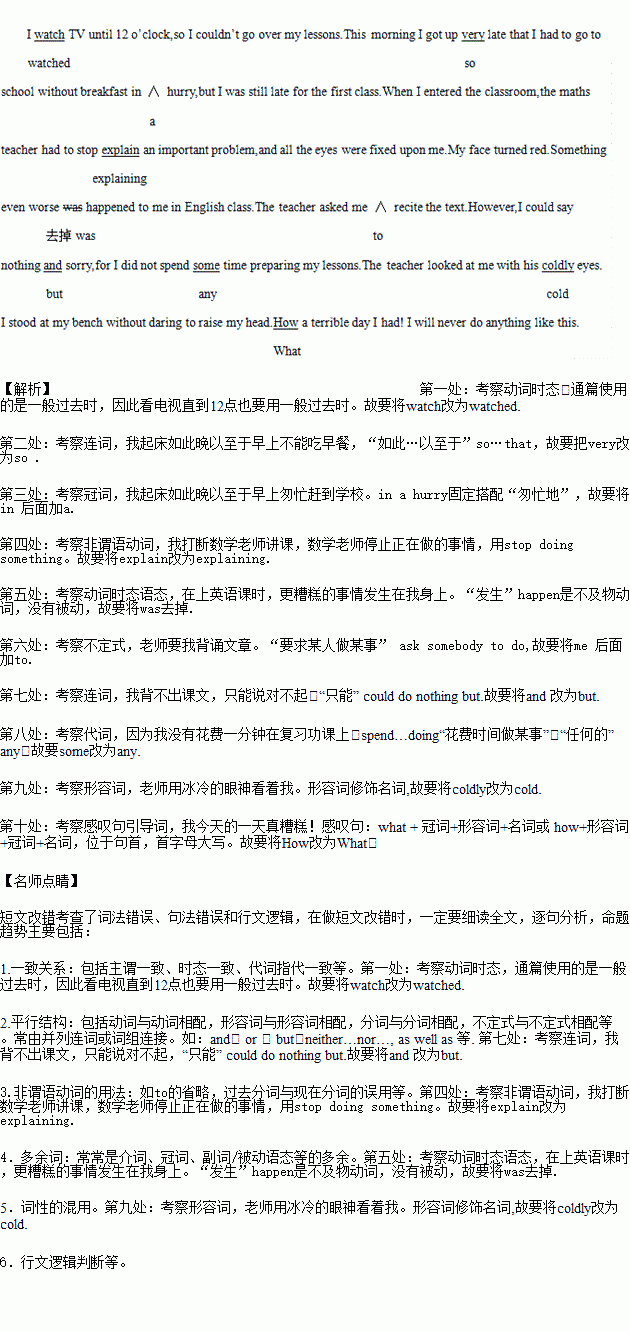题目内容
假定英语课上老师要求同桌之间交换修改作文,请你修改你同桌写的以下短文。短文中共有10处错误,每句中最多有两处。错误涉及一个单词的增加、删除或修改。
增加:在缺词处加一个漏字符号(∧),并在此符号下面写出该加的词。
删除:把多余的词用斜线(\)划掉。
修改:在错的词下划一横线,并在该词下面写出修改后的词。
注意:1.每处错误及其修改均仅限一词;
2.只允许修改10处,多者(从第11处起)不计分。
I watch TV until 12 o’clock,so I couldn’t go over my lessons.This morning I got up very late that I had to go to school without breakfast in hurry,but I was still late for the first class.When I entered the classroom,the maths teacher had to stop explain an important problem,and all the eyes were fixed upon me.My face turned red.Something even worse was happened to me in English class.The teacher asked me recite the text.However,I could say nothing and sorry,for I did not spend some time preparing my lessons.The teacher looked at me with his coldly eyes.I stood at my bench without daring to raise my head.How a terrible day I had! I will never do anything like this.


 tish professor of Egyptian history
tish professor of Egyptian history on B. expensive
on B. expensive eir native languages.
eir native languages.